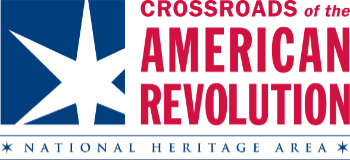Biography People
Mary Peale Field Full Biography
I was born in 1743 in Philadelphia to Oswald and Lydia Peale. I married prosperous farmer and merchant Robert Field Jr. at his Burlington County mansion on the Delaware River called White Hill. It was on land that Robert’s ancestor John Field had received title to in 1674. Our brick house had a large basement with access to the river’s edge by a tunnel, our tavern on the first floor, and our living quarters on the second floor. Robert owned a good sized plantation as well as a bake house, store, tavern, wharves and a ferry across the Delaware River. He also served as a judge on the Burlington County Court of Common Pleas. Together we had seven children, but only three lived to adulthood. When resistance to the acts of Parliament was heating up, Robert was appointed to the New Jersey Committee of Correspondence on July 21, 1774.
Robert died tragically just six months later on the night of January 29, 1775 when he fell overboard from a canoe going to his shallop. Our Negro man was with him and threw the paddle to him, but he sank immediately. His death left me to manage our family, our tavern, and a large and complicated estate. In 1776 my family consisted of infant, Robert, and toddler, Molly. In addition, Sally Redman, a longtime friend from Philadelphia and my mother were living with me and my staff of servants.
I got caught up in the Revolution during the time that General Washington’s defeat in New York and retreat into and across New Jersey in the summer and fall of 1776. The American army crossed to Pennsylvania on December 7 and 8 and the British army arrived in Trenton on the 8th. I was suffering from a sore throat and fever on December 8 when Captain Tom Houston of the Pennsylvania Navy brought several officers and about 50 sailors ashore, seized flour from my stores, and dined at my tavern before going away. Four days later, I was still sick and confined to my room when British light horse cavalrymen came to my house and accused me of harboring rebels. I denied this, but was ordered to leave my house to talk with their captain out at our fence. The captain was very polite and apologized for making me leave my house when ill. He accepted my assurances that I had no rebels secreted in my house and let me return to it. No sooner did I feel relieved than another body of horsemen arrived and told me that my neighbors were watching White Hill carefully and had reported five times in the past hour that I had a large number of rebels hiding here. Again, they took my word that I was not harboring rebels and left without searching my house. I then went upstairs to look in on little Molly who was sick and we all feared was near death. Our doctor was away and all we could do was sit with Molly and hope.
The British troops left the area, but were replaced by Hessians. Early on the morning of December 14, I was awakened when a Hessian captain and private appeared at my house. This was Captain Carl August von Wreden of the First Jaeger Company and he advised me that my tavern was to be used as quarters for either an officer or some privates. I took his advice that an officer would be preferable and my house became quarters for him and his entourage consisting of a cook, footman, waiter, butler, and hostler for his eight horses. He provided his own food and gave me no trouble at all. He was a pure gentleman and I was able to tell people that he was “the sweetest little Dutchman you ever see, the politest, obliging creature in the world.” He helped Molly recover and ensured that our property escaped the plundering that other properties in the area experienced at the hands of the soldiers.
During the next week my house was frequently visited by Hessian officers, including Colonel von Donop, and several prominent Loyalists. At Christmas time several men had tea at my house, but they left quickly after hearing of the Hessian defeat at the battle at Trenton. On December 28, American troops came through White Hill looking for horses and wagons for the army. Every horse and wagon in the area had been taken away except for mine, but General Mercer very kindly forbade mine to be taken.
Several years later, I married Commodore Thomas Read on September 7, 1779. After the war we continued to prosper. Thomas had a distinguished career in the United States Navy, two of my children married into the Stockton family of Princeton, and Annis Boudinot, the wife of Declaration of Independence signer Richard Stockton, spent her final days at my house. I died in 1816.
FURTHER SOURCES
Bice, Alice S. Bordentown Revisited. Charleston: Arcadia Press, 2005.
Dwyer, William W. The Day is Ours!: An Inside View of the Battles of Trenton and Princeton, November 1776-January 1777.New Brunswick: Rutgers University Press, 1998.(See pages 173-180, 218, 283, 380)
Field, Mary, “A Recently Discovered Letter of the American Revolution,”The Princeton University Library Chronicle, vol 4, no. 4, June 1943, 113-122. (Letter written in January 1777 about her experiences with the British and Hessian officers.)
See: Pennsylvania Evening Post, February 4, 1775, page 24 for the account of Robert Field’s drowning.
See: Pennsylvania Packet, July 25, 1774, page 5 for Robert Field’s naming to Committee of Correspondence.
